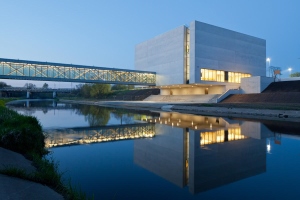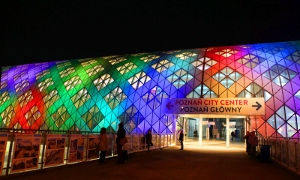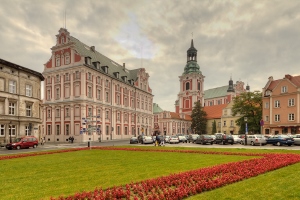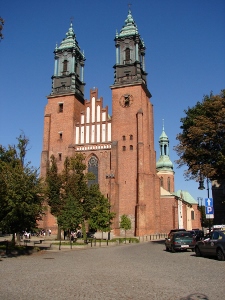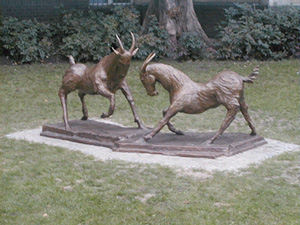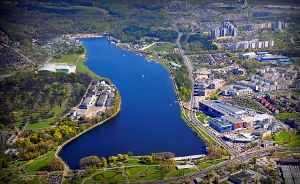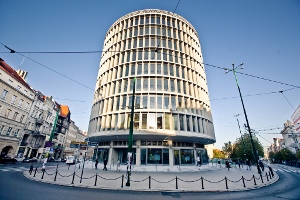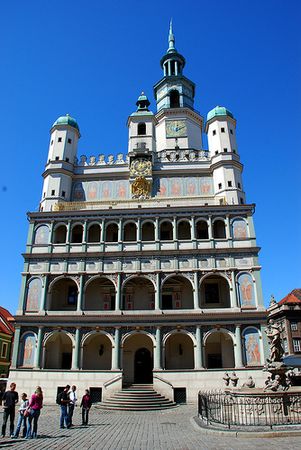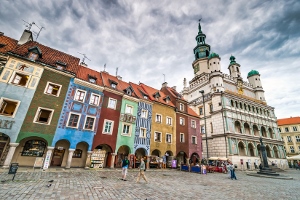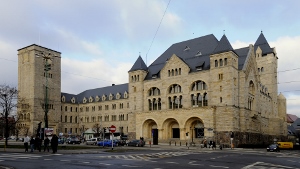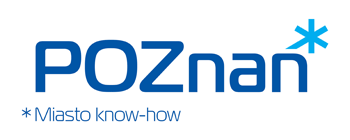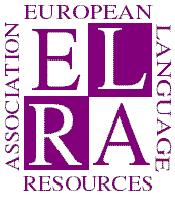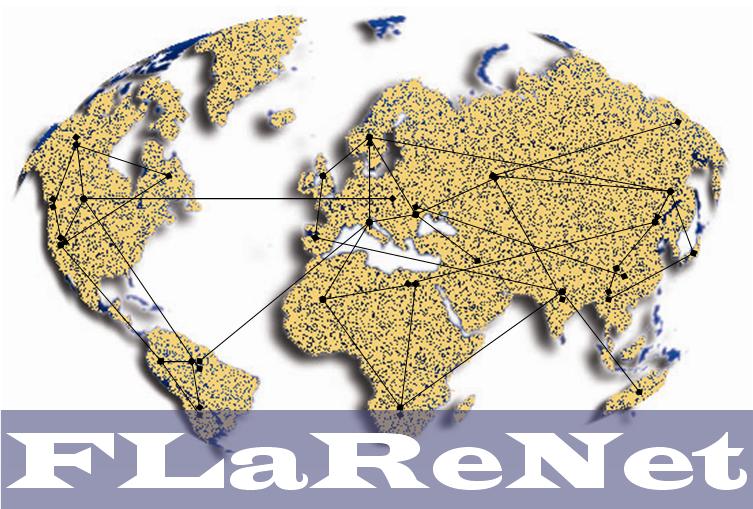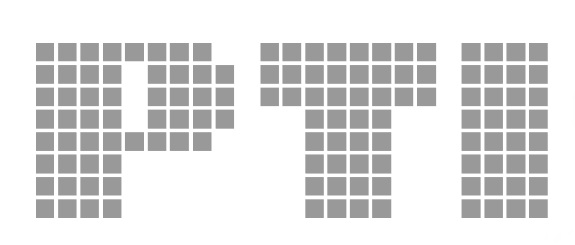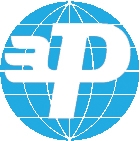Participants of former LTC events came from:




























































|
Since 1995! 30th Anniversary!
|
WELCOME to the
11th Language & Technology
Conference:
Human Language Technologies
as a Challenge for Computer Science, Linguistics
and Low-Resource Languages
|
December 5-7, 2025, Poznań,
Poland
Patronage:
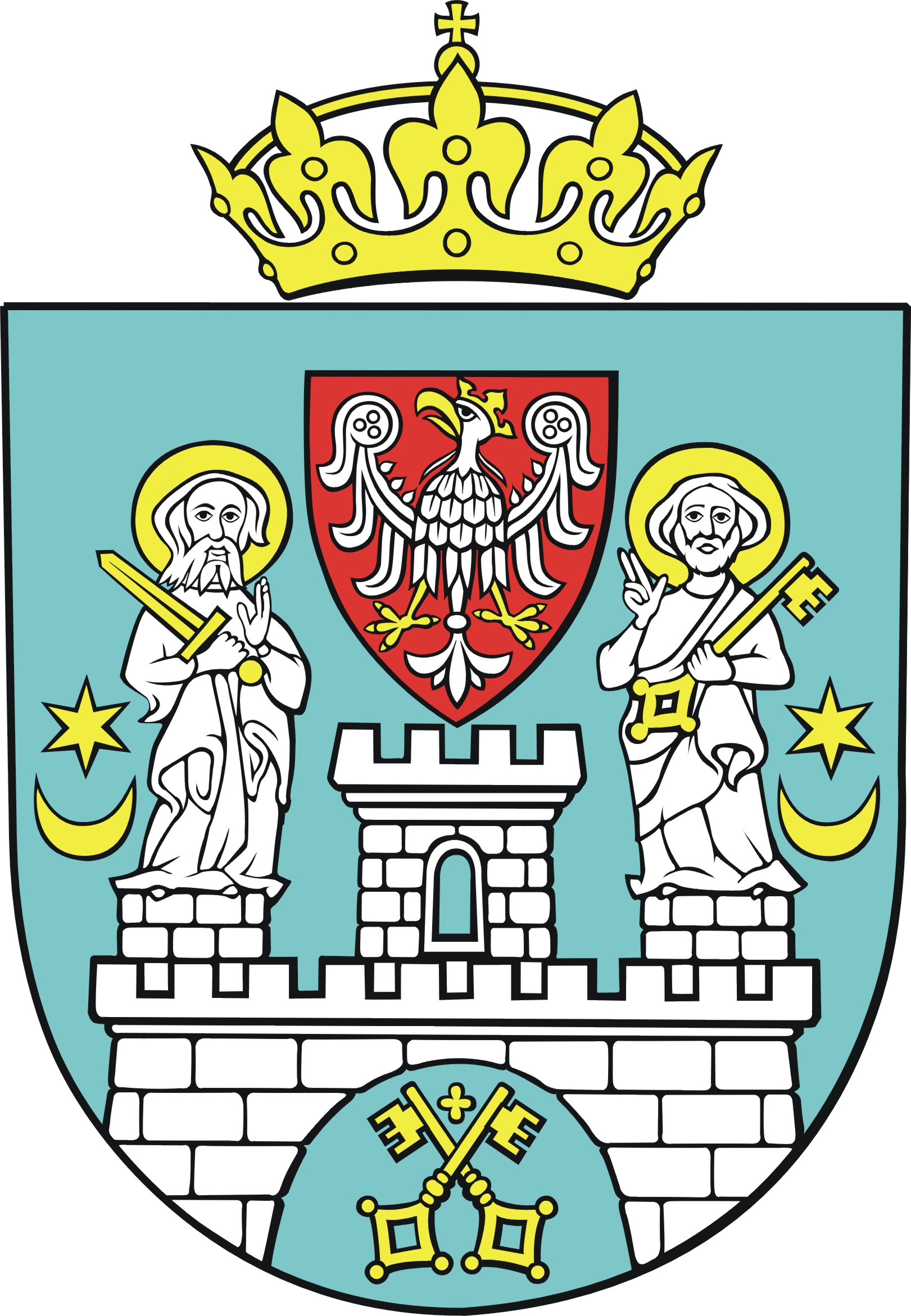
|
Jacek Jaśkowiak, Mayor of Poznań
|
|
|
| |
|
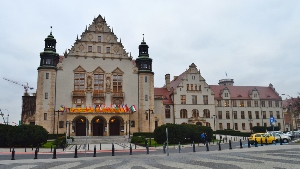
|
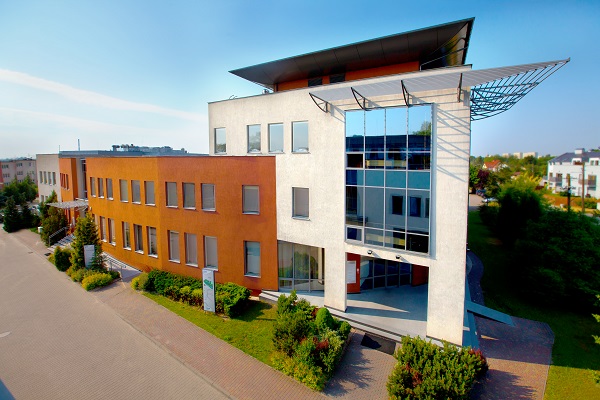
|
Adam Mickiewicz University,
Collegium Minus, Presidence
|
Adam Mickiewicz University Foundation
|
|
CO-OPERATING
ORGANIZATIONS
|
|
Dear Colleagues,
The 11th Language and Technology Conference (LTC 2025), the meeting organized by the Faculty of Mathematics and Computer Science of the Adam Mickiewicz University, Poznań, Poland and the Adam Mickiewicz University Foundation, will take place on December 5-7, 2025. Following the tradition of the past events, it is supported by ELRA, FlaReNet and META-NET. Since 2005 LTC is organized every two years as the “Language & Technology Conference: Human Language Technologies as a Challenge for Computer Science and Linguistics”.
Yes, we started 30 years ago! Our tradition goes back to the Language and Technology Awareness Days, the meeting organized in 1995 with the assistance of the European Commission (DG XIII). Among the key speakers at this conference were Antonio Zampolli (Italy), Dafydd Gibbon (Germany), Dan Tufiş (Romania), Orest Kossak (Ukraine). Today, we refer to this event as the first LTC. Fostering language technology and language resources, addressing Low-Resourced Languages, as well as creating opportunities for face-to-face meetings and know-how exchange, remains an important challenge in our dynamically changing, information-saturated world.
It is our pleasure to invite you to attend this event in the beautiful and historical City of Poznań in December 2025.
Zygmunt Vetulani, Patrick Paroubek and Irakli Kardava, LTC 2025 Co-chairs
vetulani@amu.edu.pl,
pap@limsi.fr and
irakar@amu.edu.pl
|
|
IMPORTANT DATES / DEADLINES
|
Deadline for submission of papers for review: September 15, 2025
September 22, 2025
Acceptance/Refusal notification: October 23, 2025
November 3, 2025
Deadline for submission of final versions of accepted papers: November 15, 2025
Conference (all events): December 5-7, 2025
|
The list of conference topics includes, among other, the following items (the ordering is not significative):
- AI-oriented studies of human language competence,
- communicative intelligence,
- computational semantics,
- computer modeling of language competence,
- corpora-based methods in language engineering,
- electronic language resources and tools,
- formalization of natural languages,
- HLT related policies,
- HLT standards and best practices,
- HLTs as support for e-learning,
- HLTs as support for foreign language teaching,
- HLTs as support in solving Homeland Security problems (technology applications and legal aspects),
- human-machine NL interfaces,
- knowledge representation,
- language-oriented GenAI,
- language-specific computational challenges for HLTs (especially for languages other than English),
- legal issues connected with HLTs (problems and challenges),
- Logic Programming in Natural Language Processing,
- methodological issues in HLT,
- neural networks in language engineering,
- NL applications in robotics,
- NL understanding by computers,
- NL user modeling,
- NLP methods in cyber-criminality detection and prevention,
- paralinguistic phenomena in Natural Language Processing,
- parsing and other forms of NL processing,
- question answering,
- regional languages - language technology issues,
- sentiments, opinions and emotion analysis related issues,
- socio-political aspects of HLTs,
- speech processing,
- systems with language competence - prototype presentations,
- technological aspects of nonverbal linguistics,
- text-based information retrieval and extraction,
- tools and methodologies for developing multilingual systems,
- translation enhancement tools,
- validation in all areas of HLTs,
- visionary papers in the field of HLT,
- WordNet-like ontologies.
This list is by no means closed and we are open to further proposals. Please do not hesitate to contact us in order to feed us with your suggestions and ideas of how to satisfy your expectations concerning the program. The Program Committee is also open to suggestions concerning accompanying events (workshops, exhibits, panels, etc).
Suggestions, ideas and observations should be addressed directly to the LTC Co-Chairs by email (vetulani@amu.edu.pl or pap@limsi.fr)
|
|
- Zygmunt Vetulani - chair / UAM (e-mail)
- Hieronim Maciejewski / FUAM
- Jolanta Bachan / UAM
- Irakli Kardava - co-chair / UAM
- Janusz Taborek / UAM
- Marta Witkowska - secretary / UAM
|
|
PROGRAM COMMITTEE
- Zygmunt Vetulani (Adam Mickiewicz University, Poznań, Poland) - chair
- Patrick Paroubek(LIMSI-CNRS, Orsay, France) - co-chair
- Irakli Kardava(Adam Mickiewicz University, Poznań, Poland) - co-chair
- Nilufar Abdurahmanova (National University of Uzbekistan, Uzbekistan),
- Victoria Aranz (ELDA, France),
- Mirsaid Aripov (National University of Uzbekistan, Uzbekistan),
- Jolanta Bachan (Adam Mickiewicz University in Poznań, Poland),
- Brigitte Bigi (CNRS Aix-en-Province, France),
- Krzysztof Bogacki (Warsaw University, Poland),
- Christian Boitet (IMAG Grenoble, France),
- Lynne Bowker (University of Ottawa, Canada),
- Gerhard Budin (UNI. Vienna, Austria),
- Nicoletta Calzolari (ILC/CNR, Italy),
- Nick Campbell (Trinity College Dublin, Irland),
- Khalid Choukri (ELRA/ELDA, France),
- Besik Dundua (Kutaisi International University, Georgia),
- Pinar Durdu (Kocaeli University, Turkey),
- Paweł Dybała (Jagiellonian University, Poland),
- Katarzyna Dziubalska-Kołaczyk (Adam Mickiewicz University in Poznań, Poland),
- Moses Ekpenyong (University of Uyo, Nigeria),
- Piotr Fuglewicz (TIP Ltd., Poland),
- Kepa Sarasola Gabiola (Universidad del País Vasco in Bilbao, Spain),
- Josef van Genabith (DFKI Bielefeld, Germany),
- Dafydd Gibbon (University of Bielefeld, Germany),
- Marko Grobelnik (Dept. for Artificial Intelligence at Jozef Stefan Institute, Slovenia),
- Eva Hajičová (Institute of Formal and Applied Linguistics, Charles University, Czech Republik),
- Krzysztof Jassem (Adam Mickiewicz University in Poznań, Poland),
- Girish Nath Jha (Javaharlal Nehru University, India),
- Besim Kabashi (Friedrich-Alexander Universität Erlangen-Nürnberg, Germany),
- Adnan Kavak (Kocaeli University, Turkey),
- Katarzyna Klessa (Adam Mickiewicz University in Poznań. Poland),
- Orest Kossak (Lviv Technical University, Ukraine),
- Ivana Kruijff-Korbayova (DFKI Bielefeld, Germany),
- Marek Kubis (Adam Mickiewicz University in Poznań, Poland),
- Elmurod Kuriyozov (UDC, Spain),
- Temur Kutsia (Johannes Kepler University Linz, Austria),
- Yves Lepage (Waseda University, Japan),
- Gerard Ligozat (LIMSI, France),
- Bente Maegaard (Centre for Language Technology, Danemark),
- Bernardo Magnini (ICT FBK Trento, Italy),
- Belinda Maia (University of Porto, Portugal),
- Jacek Marciniak (Adam Mickiewicz University in Poznań, Poland),
- Joseph Mariani (LIMSI, France),
- Jacek Martinek (Poznań University of Technology, Poland),
- Gayrat Matlatipov (Urgench State University, Uzbekistan),
- Sanatbek Matlatipov (National University of Uzbekistan, Uzbekistan),
- Panchanan Mohanty (GLA University, India),
- M. Asunción Moreno Bilbao (Universitat Politècnica de Catalunya, Spain),
- Agnieszka Makowiecka (IPI PAN, Poland),
li class="lt"> Bartłomiej Naskręcki (Adam Mickiewicz University in Poznań, Poland),
- Ngoc Thanh Nguyenen (University of Wrocław, Poland),
- Jan Odijk (University Utrecht, Netherlands),
- Peter Odrakiewicz, Academy of Management, USA N.Y.
- Atul Ojha (National University of Ireland, Irland),
- Karel Pala (Masaryk University, Czech Republic),
- Pavel S. Pankov (Institute of Mathematics of National Academy of Sciences of Kyrgyzstan, Kyrgyzstan),
- Paweł Pawłowski (Technical University in Poznań, Poland),
- Maciej Piasecki (Wroclaw University of Science and Technology, Poland),
- Stelios Piperidis (The Institute for Language and Speech Processing (ILSP), Greece),
- Gabor Proszeky (Morphologic, Hungary),
- Michał Ptaszyński (Kitami Institute of Technology, Japan),
- Georg Rehm (German Research Center for Artificial Intelligence (DFKI), Germany),
- Sanja Seljan (University of Zagreb, Croatia),
- Maria Paula Santalla del Rio (Universidade de Santiago de Compostela, Spain),
- Maksud Sharipov (Urgench State University, Uzbekistan),
- Virach Sornlertlamvanich (Faculty of Engineering Thammasat University, Thailand),
- Claudia Soria (ILC/CNR Institute for Computational Linguistics «A. Zampolli», Italy),
- Łukasz Sułkowski (Jagiellonian University in Cracow /Department of Management of Higher Education Institutions/ and WSB Academy in Dąbrowa Górnicza, Poland),
- Michał Szczyszek(Adam Mickiewicz University, Poland),
- Janusz Taborek (Adam Mickiewicz University, Poland),
- Marko Tadić (University of Zagreb, Croatia),
- Shiv Tripathi (Berlin School of Business and Innovation /Faculty of Rcenomivs and Business Administration/,
Germany)
- Dan Tufiş (ICIA: Research Institute for Artificial Intelligence, Romanian Academy, Romania),
- Ualsher Tukeyev (Al-Farabi Kazakh National University,Kazakhstan),
- Tamás Váradi (Hungarian Research Institute for Linguistics, Hungary),
- Andrejs Vasiljevs (Tilde (company), Latvia),
- Cristina Vertan (Fakultät für Mathematik, Informatik und Naturwissenschaften Informatik, Universität Hamburg, Germany),
- Dusko Vitas (Faculty of Mathematics, University of Belgrade, Serbia),
- Mariusz Ziółko (AGH University of Science and Technology, Poland),
|
|
SPECIAL EVENTS: CALL FOR WORKSHOPS, PANELS, DEMOS, ...
|
|
Besides the standard conference presentation of papers, the LTC'25 Organizers are open to various kinds of Special Events (Workshops, Panels, Demos and other) compatible with the LTC'25 list of topics. These events will be entierly integrated with LTC'25; in particular, they will be open to all registered LTC'25 participants.
A program of special events is now under construction. We will appreciate your suggestions.
The Call for Special Events is already open.
Individuals or institutions interested in organizing a workshop or other Special Event are urgently requested to contact the LTC'25 organizers by email.
The organizational details of special events (workshops, panels, demos, etc.) will have to be agreed between the LTC'25 organizers and the event initiators.
In all matters concerning Special Events, please send e-mails to Zygmunt Vetulani (vetulani@amu.edu.pl) /cc Irakli Kardava (irakar@amu.edu.pl)/.
|
|
CALL FOR STUDENT VOLUNTEERS
|
|
The Organizing Committee warmly invites student volunteers to participate and support the successful execution of the conference.
This is an excellent opportunity to engage with the academic community and contribute to a significant event.
For further information, please contact Tamta Kvaratskhelia (UAM) at tamkva@amu.edu.pl
|
|
The First LTC Workshop on Less Resourced Languages of India (WLRLI 2025)
|
|
An event at: 11th Language & Technology Conference: Human Language Technologies as a Challenge for Computer Science, Linguistics and Low-Resourced Languages
December 5-7, 2025, Poznan, Poland
https://www.ltc.amu.edu.pl/
CALL FOR PAPERS
WORKSHOP DESCRIPTION
This workshop will address the pressing challenges and opportunities in developing
Human Language Technologies (HLT) for India’s low-resourced languages. India’s linguistic
landscape, with over 1,600 languages and dialects, represents both immense cultural wealth
and significant technological challenges. While a few major languages have received attention,
a vast majority remain underrepresented in digital spaces due to the scarcity of corpora,
tools, and standardized resources. The workshop seeks to bring together researchers, linguists,
computer scientists, and digital humanists to share experiences, present solutions, and foster
collaboration in this domain.
This workshop invites submissions of full papers, short papers, posters, and demos related to
Human Language Technologies for low-resourced Indian languages.
Motivation and Topics of Interest
The lack of standardized corpora, annotated resources, and computational tools has limited
the development of HLT for many Indian languages, particularly Sanskrit, Prakrit, tribal, and
minority languages. The workshop will highlight strategies such as transfer learning, multilingual
models, and community-driven resource creation.
Topics include (but are not limited to):
• Resource creation: text, speech, multimodal corpora
• Automatic Speech Recognition (ASR) and Text-to-Speech (TTS) for low-resource languages
• Machine Translation (MT) for underrepresented Indian languages
• OCR, transliteration, and digital humanities applications
• Standards, benchmarks, and evaluation methodologies
• Tools for pedagogy and language learning technologies
• Ethical issues in community-driven linguistic resource development
Estimated Audience
Up to 35 scholars, researchers, and students from India and abroad working on computational linguistics,
NLP, ASR, and digital humanities for Indian languages.
The workshop will ensure gender balance, geographic diversity, and a mix of academic and industry perspectives.
Special encouragement will be extended to students, early-career researchers, and contributors from
underrepresented linguistic communities.
Information about Previous Related Workshops
Several workshops (e.g., WILDRE1,2,3,4,5,6,7) have addressed Indian language technologies, but there remains
a strong need for focused discussion on HLT for low-resourced languages. This workshop will build on those
efforts, with a sharper emphasis on speech, NLP, and digital humanities for underrepresented Indian languages.
Dates, Venue and Conference Website
Dates: December 5–7, 2025 (as part of LTC 2025)
Venue: Poznań, Poland
Conference Website: https://ltc.amu.edu.pl/
WORKSHOP ORGANIZERS
Chair: Prof. Girish Nath Jha, School of Sanskrit and Indic Studies, Jawaharlal Nehru University, New Delhi,
India.
Program Committee
• Dr. Subhash Chandra, Delhi University.
• Dr. Atul Kumar Ojha (University of Galway)
• Dr. Devendra Singh Rajput, Central University of Haryana.
• Dr. Niladri Sheker Das, ISI, Kolkata.
• Dr. S. Arulmozi, University of Hyderabad.
• Dr. Kabi K. Khanganba, Jawaharlal Nehru University, New Delhi.
• Dr. Devendr Kumar, Jawaharlal Nehru University, New Delhi.
• Dr. Shriti Singh, Shaip.AI, Ahmadabad
• Dr. Sachin Kumar, DataOrb AI.
• Dr. Manji Bhadra, Bankura University.
• Dr. Diwakar Mishra, Sambhavika AI.
• Dr. Pinky Nainwani, DataOrb AI.
• Dr. Ritesh Kumar, Agra University.
• Dr. Narayan Choudhary, CIIL, Mysore
• Dr. Ram Kishor, Ignou, New Delhi.
• Dr. Chitresh Soni, Ignou, New Delhi.
• Dr. Jyoti, Jawaharlal Nehru University, New Delhi.
• Dr. Asheesh Kumar, Ignou, New Delhi.
• Dr. Esha Bunerjee, Panlingua LLP.
• Dr. Sagun Sinha, Amity University, Noida, UP.
• Dr. Jyoti Pawar, Goa University, Goa.
• Prof. Pushpak Bhattavharya, IIT, Bombay.
• Dr. Karunesh Arora, CDAC, Noida.
• Prof. Parth Talukdar, Google NLU, Bangalore.
• Prof. Shailendra Mohan, CIIL, Mysore.
• Prof. Shobha L.
• Prof. Vetulani Zygmunt
IMPORTANT DATES / DEADLINES
• Deadline for submission of papers for review: September 22, 2025
• Acceptance/Refusal notification: October 8, 2025
• Deadline for submission of final versions of accepted papers: October 20, 2025
• Conference (all LTC events): December 5–7, 2025.
WLRLI Chair:
Prof. Girish Nath Jha, India
CONTACT
E-mails:
Prof. Girish Jha
Prof. Zygmunt Vetulani
|
|
LTC'25 Workshop - HLTs as a challenge for Humanities
|
|
An event at: 11th Language & Technology Conference: Human Language Technologies as a Challenge for Computer Science, Linguistics and Low-Resourced Languages
December 5-7, 2025, Poznan, Poland
https://www.ltc.amu.edu.pl/
CALL FOR PAPERS
WORKSHOP DESCRIPTION
Human Language Technologies: a challenge for social, managerial, ethical and legislative theory and practice
in view of recent geoeconomic and geopolitical challenges and new paradigm shift.
Our goal is to take an in-depth approach to the new challenges for the humanities and social sciences *(mainly legal, ethical and sociological, but also economics and management sciences)*
posed by the current transformations in the field of Language Engineering.
The nature of the challenges requires analysis, depending on the degree of demand for natural language technologies for different languages, as well as for various social, ethical and legal factors.
Workshop participants are expected to provide original reflections on the current impact of modern information technology on the areas of the humanities identified above. We welcome both analyses
of current trends and (realistic) visions of how technology will impact these fields in the near future.
The workshop language is English.
This workshop invites submissions of full papers, short papers, posters, and demos related to
Human Language Technologies.
DATES, VENUE and CONFERENCE WEBSITE
Dates: December 5–7, 2025 (as part of LTC 2025)
Venue: Poznań, Poland
Conference Website: https://ltc.amu.edu.pl/
WORKSHOP COMMITTEES
Chair:
Peter Odrakiewicz, Academy of Management , USA / Ret. Ambassador HR in Management/,
GSW Milenium Poland
Members:
Jakub Kępiński, Adam Mickiewicz University in Poznań (UAM) /Faculty of Law and Administration/, Poland
Bartłomiej Naskręcki, Adam Mickiewicz University in Poznań (UAM), Poland
Łukasz Sułkowski, Jagiellonian University in Cracow /Department of Management of Higher Education Institutions/
and WSB Academy in Dąbrowa Górnicza, Poland
Michał Szczyszek, Adam Mickiewicz University in Poznań (UAM), Poland
Shiv Tripathi, Berlin School of Business and Innovation /Faculty of Rcenomivs and Business Administration/, Germany
Tamta Kvaratskhelia, Adam Mickiewicz University in Poznań (UAM), Poland
Zygmunt Vetulani, Adam Mickiewicz University in Poznań (UAM)/Faculty of Mathematics and Computer Scince/, Poland
IMPORTANT DATES / DEADLINES
• Deadline for submission of papers for review: October 13, 2025
• Acceptance/Refusal notification: October 27, 2025
• Deadline for submission of final versions of accepted papers: November 10, 2025
• Conference (all LTC events): December 5–7, 2025.
CONTACT
E-mails:
Peter Odrakiewicz
Zygmunt Vetulani
|
|
The conference language is English.
|
|
Acceptance will be based on the reviewers' assessments (anonymous submission model /double-blind reviewing/). The accepted papers will be published in the conference proceedings (hard copy, OPEN ACCESS).
Publication of an accepted paper requires full electronic registration and payment of the conference fee . For the obvious reason that the conference fee must cover (in particular) the publication costs, the following rule is applied: "one registration fee entitles publication of one paper"
We intend to continue the LTC tradition of publishing selected, significantly expanded versions of the papers presented at the LTC'25 conference.
More detailes will follow soon.
|
|
This site is in progress. Further important practical information will be published successively.
Please consult this site again from time to time.
|
|
LTC accepts papers in English only (concerns also all workshops). Papers (5 pages in the conference format) are due by September 15, 2025 September 22, 2025 (midnight, any time zone) and should not disclose the author(s) in any manner. In order to facilitate submission we have decided to reduce the formatting requirements as much as possible at this stage. However, please do observe the following:
- Accepted fonts for English text are Times Roman and Times New Roman. Courier is recommended for program listings.
- Character size for the main text should be 10 points, with 11 points leading (line spacing).
- Text should be presented in 2 columns, 8,42 cm each with 0,95 cm between columns (gutter).
- The fully anonymized paper must be submitted for reviewing as a PDF document, together with an editable source in MS Word. (Please no other formats.)
- More details concerning submission will be provided soon.
The Word template in LTC'25 camera_ready submission format is available here.
The electronic submission of papers (including workshops) is active on EasyChair. Web page for LTC'25 submission is: https://easychair.org/conferences?conf=ltc25
|
|
FINAL PAPER SUBMISSION (CAMERA-READY)
|
|
WHEN TO SUBMIT?
The deadline to supply the final, camera-ready copies of papers is Saturday, November 15, 2025. Registration and payment of the registration fee may be done before supplying the final paper.
IMPORTANT.
Please notice, that to be published in the LTC 2025 proceedings the paper must be covered by a complete registration.
HOW TO SUBMIT?
Conference materials will be published both in paper and digital versions, in OPEN ACCESS.
The printed proceedings will be black-and-white, therefore submission of the balck-and-white camera-ready original is mandatory.
Authors who wishes the electronic version to be available in color are requested to provide a second, multi-color version of the paper, in which black and white graphic objects will be replaced with colored ones.
FURTHER DETAILS WILL BE PROVIDED IN THE DUE TIME.
|
|
PAPER PRESENTATIONS AND PANELS
|
|
LTC'25 only allows:
1) face-to-face paper presentation by at least one of co-authors,
2) exlusiveiy in-person paticipation in panel discussions.
Duration of a typical paper presentation (oral): 20 min. + 5 min. for discussion.
A computer with Windows will be available for ppt presentations and panel discussions.
Presenters/panelists are supposed to have with them the ppt presentation recorded on their personal USB memory stick (pendrive).
In all non-typical cases you are supposed to contact the LTC organisers.
|
|
CONFERENCE REGISTRATION FEES
|
|
ATTENTION!
To publish an article in the LTC 2025 conference proceedings,
at least one co-author must pay the registration fee associated with
the paper before November 11, 2025. IMPORTANT! Only articles
for which at least one of co-authors has paid the LTC registration fee
will be published in LTC Proceedings.
PLEASE NOTE: In terms of rights and responsibilities, the status of a workshop participant is identical to that of other LTC conference
attenders. In particular, this means that all registered attenders are subject to the same payment rules.
Non-student participants:
Regular registration fee (if payment before November 15, 2025 , midnight Poznań local time /i.e. CEST or UTC+2h/): 400 EURO
Late registration fee (if payment after November 14, 2025, midnight Poznań local time /i.e. CEST or UTC+2h/): 450 EURO
Student participants:
Regular registration fee (if payment before November 15, 2025 , midnight Poznań local time /i.e. CEST or UTC+2h/): 260 EURO.
Late registration fee (if payment after November 14, 2025 , midnight Poznań local time /i.e. CEST or UTC+2h/): 300 EURO.
ATTENTION!
Student paticipants of workshops:
For student participants of workshops the registration fee is 200 EURO, provided that:
1) these persons are/were students or doctoral students on September 30, 2025,
2) they are registered authors or co-authors of articles presented at LTC'25,
3) in the articles mentioned above, the effort share of co-authors who are not students is less than or equal to 20% (according to co-authors declaration).
IMPORTANT. To be entitled to student rates the participant must present the proof of full-time student status valid on September 22, 2025 (in form of scanned copy of a student ID card or an equivalent document send by e-mail to ltc25@amu.edu.pl (cc to marta.witkowska@amu.edu.pl); before or at the registration day).
The e-mail subject field must have the following format:
LTC-2025--'Last_name_of_participant'.
The conference fee covers:
- participation in the scientific program /including presentation of one paper*
- the LTC 2025 proceeding (open access) both in the paper and electronic form and the publication of one accepted paper of up to 5 pages in conference proceedings*)
- conference materials
- social events (gala dinner, ...)
- coffee breaks
*) For each additional paper by the same author, there is an additional charge of 170 EURO . For papers of more than 5 pages, the charge is 50 EURO for each additional page (max 2 additional pages are admitted). Authors participating in LTC 2025 with more than one paper are kindly requested to consult the Registration and Payment section for detailed payment regulations ( at www.ltc.amu.edu.pl).
Conference fee for an accompanying person is 100 EUR. This fee covers access to conference premises and includes participation in the non-scientific program (gala dinner, coffee breaks, ...).
|
| Day 1, Friday, Dec 5, 2025 |
| Address: ul. Wieniawskiego 1, 61-712 Poznań |
13:00 - 15:00 |
Registration |
| Collegium Minus |
15:00 - 15:30 |
Opening |
15:30 - 16:00 (+5 min QA) |
Keynote speaker: Bartosz Naskręcki and Michał Szczyszek
Beyond Wierzbicka: LLM-Powered Analysis of the Natural Semantic Metalanguage Boundaries |
16:00 - 16:20 (+5 min QA) |
Zygmunt Vetulani, Peter Odrakiewicz and Jakub Kępiński
AI in Business, Economy and Intellectual Property Law: Challenges, Opportunities and Risks
|
16:25 - 16:45 (+5 min QA) |
Mélanie Lancien and Brigitte Bigi
French Cued Speech rhythm: first findings on the relationship between hand position and segments' duration
|
16:50 - 17:20 |
Coffee break |
17:20 - 17:40 (+5 min QA) |
Tímea Bajzát and Balázs Indig
The Game of Prompts Identifying Auxiliary Constructions with LLMs and Human Participants in a Language Game
|
17:45 - 18:05 (+5 min QA) |
Aritz Gorostiza, Małgorzata Kossowska, Reyes Rodríguez, Sandra Cava, Monika Golab, Karolina Bonarska and Gabriele Di Cicco
3NMark: A Psychologist Annotated Twitter Corpus on Migration for 3N Model Analysis in Spanish and Polish
|
18:10 - 18:30 (+5 min QA) |
Yoichi Uetake
Theme Rheme structure and Nakano Amari Kohonen Hopfield networks
|
18:35 - 18:55 (+5 min QA) |
Andrzej Zydroń
Using LLM Technology to Create Our Own Adaptive MT
|
|
Day 2, Saturday, Dec 6, 2025
|
|
Address: ul. Wieniawskiego 1, 61-712 Poznań
|
|
Collegium Minus
|
|
9:00 - 9:20 (+5 min QA)
|
Keynote speaker: Panchanan Mohanty, Zygmunt Vetulani and Grazyna Vetulani
Particles in Odia, Polish and French: a Machine Translation Perspective
|
|
9:25 - 9:45 (+5 min QA)
|
Aniela Walczak, Piotr Kondratowicz and Rafał Jaworski
Assessing the Sentiment and Value of Product Reviews in Brazilian Portuguese
|
|
9:50 - 10:10 (+5 min QA)
|
Jolanta Bachan and Agnieszka Jeran
Who Speaks About Childbirth? A Corpus-Driven Study of Parliamentary Discourse in Poland
|
|
10:15 - 10:35 (+5 min QA)
|
Said Yasin and Torsten Zesch
Show, don’t tell – Providing Visual Error Feedback for Handwritten Documents
|
|
10:40 - 11:10
|
Coffee break
|
|
11:10 - 11:30 (+5 min QA)
|
Gabriela Kaczmarek, Pietro Ferrazzi, Lorenzo Porta, Vicky Rubini and Bernardo Magnini
Toward Automatic Filling of Case Report Forms: A Case Study on Data from an Italian Emergency Department
|
|
11:35 - 11:55 (+5 min QA)
|
Vaclav Divis, Marek Hruz and Bastian Spatz
Revisiting the Discrete System-Prompt Optimization in LLM
|
|
12:00 - 12:20 (+5 min QA)
|
Tamta Kvaratskhelia and Irakli Kardava
The Precautionary Alignment Framework (PAF): Navigating Dual-Use AI, Geopolitical Risk, and the Enforcement of Procedural Consensus
|
|
12:25 - 14:00
|
Lunch break
|
|
Online session
|
Click here to join the online meeting
|
|
14:00 - 14:20 (+5 min QA)
|
Yifei Zhou and Yves Lepage
Guiding Large Language Models with Their Own Linguistic Knowledge for Morphological Inflection
|
|
14:25 - 14:45 (+5 min QA)
|
Shyam Ratan
Propaganda in Hindi Media Outlets: A Comparative Study of Indian Media Outlets
|
|
14:50 - 15:10 (+5 min QA)
|
Arooshi Nigam and Subhash Chandra
Building Digital Resources for Dharmaśāstra Texts: A Concept Mining System for Indian Knowledge System
|
|
15:15 - 15:35 (+5 min QA)
|
Benu Pareek, Karthick Narayanan, Shyam Ratan, Siddharth Singh, Saurabh Singh, Ritesh Kumar, Bornini Lahiri, Neerav Mathur, Amalesh Gope, Meiraba Takhellambam and Yogesh Dawar
Project BoLI: Building Equitable Benchmarks for Multilingual Speech and Language Technologies in India
|
|
15:40 - 16:00 (+5 min QA)
|
Narayan Choudhary, Rejitha K S, Rajesha N, Anand Jain, Stephen Fernandes and Writtik Bhattacharya
The Mother Tongue Parallel Text Corpus of India: Design, Development, and Applications
|
|
16:05 - 16:25 (+5 min QA)
|
Rajesha N and Narayan Choudhary
Digraphia of Maithili: Transliteration of Speech Corpus Transcripts to Tirhuta Script
|
16:30 - 16:50 (+5 min QA)
|
Ifeanyi Ogbodo
Preserving the Communicative Dynamism of Nigerias 250+ Languages in the Age of Artificial Intelligence
|
|
18:00 - 21:00 (+5 min QA)
|
Gala dinner
|
|
Day 3, Sunday, Dec 7, 2025
|
|
10:00 - 13:00
|
Dear LTC'25 participants,
We would like to inform you that at 09:45 in the morning we will meet at the following address: Góra Przemysła 1, 61-768 Poznań. The Museum of Applied Arts opens at 10:00 in the morning. More precise GPS details can be found bellow.
|
|
Conference participants from some countries may need visas to enter the Polish territory. Citizens of most of UE countries and some other are exempt from this obligation. To check your case and to be informed about the procedure to be followed (if necessary),
please contact an official Polish Consular Office in your country.
In some countries the local Ministery of Foreign Affairs / Tourism (or equivallent) may also provide some useful information.
The following links may be helpful:
https://en.wikipedia.org/wiki/List_of_diplomatic_missions_of_Poland
https://www.gov.pl/web/diplomacy/visas
|
|
LTC 2025 is located in the Adam Mickiewicz University in Poznań, Poland, Poland.
Location: 61-715 Poznań, ul. Wieniawskiego 1 (street)
Geographical position: 52° 24′ 35,09″ N, 16° 55′ 08,81″ (cartographic map based on OpenStreetMap)
Registration will start on December 5 (Friday) at 9:00 a.m. in Collegium Minus, ul. Wieniawskiego 1.
|
|
As in previous LTC conferences (2005, 2007, 2009, 2011, 2013,2015, 2017, 2019 and 2023) the best student papers will be distnguished
|
|
THIS SITE IS IN PROGRESS.
USEFUL PRACTICAL INFORMATION WILL BE SUCCESSIVELY PUBLISHED ON THIS SITE.
WE RECOMMEND TO CONSULT IT FROM TIME TO TIME.
|
|
We recommend to visit the City of Poznań website. You wll find there practical informations about the City, including culture, history, places of interest and sport events.
|
|
OTHER PRACTICAL INFORMATION
|
|
Other important practical information will be published successively on this site. Please consult this site again from time to time.
|
|
Address: The 11th Language and Technology Conference (LTC 2025)
Adam Mickiewicz University
Faculty of Mathematics and Computer Science
ul. Uniwersytetu Poznańskiego 4
PL 61-614 Poznań
e-mail: vetulani@amu.edu.pl /cc: irakar@amu.edu.pl /
http://www.ltc.amu.edu.pl
|
| |
| WELCOME TO EUROPE ⇒ POLAND ⇒ POZNAŃ |
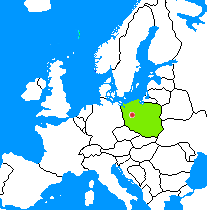 |
| |
This website is evolving and will be regularly updated.
You are kindly invited to visit it time to time.





























































